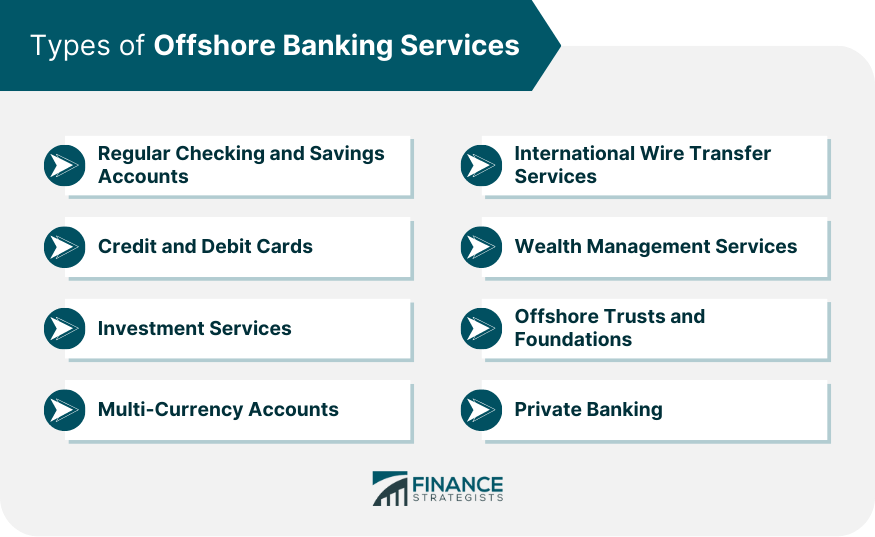Demystifying Offshore Business Formations: Exactly How They Operate and What to Expect
Offshore company formations can appear facility and enigmatic. Offshore Company Formations. These entities, often developed for tax obligation advantages and personal privacy, run under unique legal structures. Business owners might discover themselves maneuvering with a puzzle of regulations and compliance needs. Comprehending the intricacies is crucial for success. What are the real benefits? What are the prospective risks? A closer assessment discloses the subtleties that could influence decision-making significantly
Comprehending Offshore Companies: Kinds and meanings
Offshore companies are entities developed in a jurisdiction outside of a person's or service's main nation of home, usually for functions associated with tax obligation optimization, property security, or governing advantages. These companies can take various kinds, consisting of limited liability firms (LLCs), international company companies (IBCs), and offshore depends on. Each type offers particular features and interest different needs.
Restricted responsibility business offer proprietors with protection from personal responsibility, while international service companies are popular for their versatility and marginal reporting demands. Offshore counts on, on the various other hand, are used primarily for estate planning and property protection.
The option of territory substantially influences the business's procedures, as some areas provide more favorable legal structures and personal privacy protections. Offshore Company Formations. Comprehending the differences in between these kinds is essential for people and companies taking into consideration offshore structures, as each option lugs different implications for governance and conformity
The Benefits of Developing an Offshore Firm
Developing an overseas company can supply numerous advantages, particularly for those seeking to enhance their financial approaches and secure their properties. One substantial advantage is tax obligation optimization; many jurisdictions provide beneficial tax obligation rates or exemptions, enabling organizations to preserve even more revenues. In addition, offshore business can provide a layer of personal privacy, shielding the identities of proprietors and shareholders from public examination.
An additional advantage is possession protection. By placing assets in an overseas entity, individuals can protect their wealth from potential lawful cases or political instability in their home nations. This framework also promotes global business procedures, making it possible for simpler accessibility to global markets and diverse customers.
The facility of an offshore company can boost reliability and stature, appealing to clients that value global company methods. Overall, these advantages make offshore firm formations an eye-catching option for services and individuals intending for monetary development and protection.
Secret Factors To Consider Prior To Developing an Offshore Entity
Before developing an overseas entity, several vital aspects need to be examined. Legal conformity requirements, tax obligation effects and advantages, in addition to jurisdiction selection, play a significant role in the decision-making procedure. Recognizing these factors to consider can assist organizations and individuals browse the intricacies of overseas company formations successfully.

Lawful Conformity Requirements
When taking into consideration the formation of an offshore entity, recognizing lawful compliance demands is vital to assure adherence to both local and global regulations. Potential local business owner need to familiarize themselves with guidelines governing firm registration, reporting responsibilities, and operational requirements in the chosen territory. This consists of confirming the lawful requirements for shareholders and directors, as well as guaranteeing compliance with anti-money laundering (AML) and know-your-customer (KYC) guidelines. In addition, companies should remain familiar with any licensing requirements details to their market. Engaging neighborhood legal and monetary specialists can provide valuable insights, ensuring that all required documents is prepared and submitted properly. Eventually, complete knowledge of lawful compliance assists mitigate dangers and promotes a lasting overseas procedure.
Tax Effects and Advantages
Many local business owner think about the tax obligation effects and advantages of forming an overseas entity as an important consider their decision-making procedure. Offshore firms can supply significant tax benefits, such as lowered company tax obligation prices, exception from specific regional taxes, and the capacity to defer tax obligations on international income. These advantages can result in improved profitability and capital, making overseas structures appealing for global service operations. Additionally, the possibility for tax treaties might even more decrease tax responsibilities. It is vital for business owners to comprehend the intricacies involved, consisting of conformity with both local and worldwide tax laws. Involving with tax obligation professionals is advisable to navigate these ins and outs successfully and guarantee perfect tax preparation techniques.
Territory Choice Elements
What aspects should one think about when selecting a jurisdiction for overseas firm development? Key considerations consist of tax obligation effectiveness, regulatory atmosphere, and political security. Jurisdictions with positive tax programs can considerably affect profitability. The regulatory landscape ought to use adaptability and convenience of conformity, allowing for efficient organization operations. Political security is crucial, as it assures the security of possessions and connection of operations. Furthermore, the online reputation of the jurisdiction can impact customer count on and organization relationships. Availability to financial solutions and the availability of professional support services are also vital. Recognizing local legislations pertaining to ownership, privacy, and reporting requirements is necessary to identify that the overseas entity straightens with the business proprietor's objectives and legal responsibilities.
The Process of Establishing an Offshore Business
Establishing an offshore firm includes a collection of tactical actions that call for careful planning and conformity with international policies. An individual have to choose a suitable territory that lines up with their organization goals and provides desirable tax obligation benefits. Adhering to jurisdiction choice, the following action is to pick a distinct firm name and prepare the needed paperwork, consisting of short articles of unification and shareholder like it arrangements.
When the documents prepares, it must be submitted to the pertinent authorities together with the required charges. After authorization, the company will certainly obtain a certificate of consolidation, formally establishing its legal presence. The specific should after that open up a business checking account to promote monetary deals.
Maintaining an overseas business includes sticking to recurring conformity requirements, such as annual coverage and tax obligation obligations, which vary by jurisdiction. Comprehending each action is vital for a successful overseas firm development.

Lawful and Governing Framework for Offshore Firms
While developing an offshore company can offer substantial benefits, it is vital to steer with the intricate legal and regulative framework that governs such entities. Each territory has its very own set of laws that determine every little thing from firm development to tax and compliance needs. These laws are created to avoid unlawful tasks, such as money laundering and tax obligation evasion, and typically require detailed paperwork and openness.
Crucial element of this framework include the requirement of designating local directors, maintaining a licensed office, and sticking to annual coverage responsibilities. Furthermore, numerous territories impose specific licensing demands for particular business activities. Recognizing these lawful stipulations is essential for making sure conformity and mitigating dangers related to penalties or lawful conflicts. Involving with lawful professionals that specialize in overseas companies can aid in navigating via this complex landscape, ultimately promoting a effective and certified offshore organization procedure.
Usual Misunderstandings About Offshore Companies
Many individuals hold misunderstandings about offshore firms, commonly relating them with tax obligation evasion and illegal tasks. Nonetheless, it is important to recognize that these entities can operate legally within a framework designed for legitimate business techniques. Making clear the lawful status of overseas business can help dispel these misconceptions and promote a more exact understanding of their function.
Tax Evasion Misconceptions
In spite of the growing appeal of offshore firms, misconceptions about their usage for tax obligation evasion persist. Numerous individuals mistakenly believe that developing an offshore entity is solely a way to avoid tax obligations. However, overseas business are usually utilized for legit objectives, such as asset security, worldwide business growth, and investment diversity. The assumption that all offshore tasks relate to illicit tax obligation evasion neglects the intricacies of worldwide tax guidelines and compliance requirements. Furthermore, the substantial bulk of overseas territories have executed steps to battle tax evasion, promoting openness and information exchange. This mischaracterization can discourage legit companies and capitalists from discovering the potential benefits of offshore firm formations while perpetuating an unfavorable stigma bordering these entities.
Lawful Status Clarified
The lawful standing of offshore business is typically misinterpreted, leading to a range of misconceptions. Numerous think these entities operate in a legal gray area, assuming they are inherently prohibited or unethical. Actually, offshore business are genuine services developed under the legislations of particular jurisdictions, made for different reasons, including asset protection and market development. An additional typical false impression is that overseas business avert taxes entirely; nonetheless, they are subject to the regulations and tax responsibilities of their home countries. Furthermore, some people think that offshore firms can be quickly exploited for money laundering or unlawful activities. While abuse can take place, most jurisdictions impose strict compliance and transparency legislations to alleviate such dangers, making sure that offshore companies run within legal frameworks.
Handling and Running Your Offshore Company Successfully
Effectively managing and operating an offshore company needs a critical method that balances conformity with neighborhood regulations and the pursuit of service objectives. Effective overseas management involves recognizing the jurisdiction's tax legislations, reporting demands, and operational guidelines. Employing regional professionals, such as accounting professionals and legal consultants, can give important understandings right see this here into going across these intricacies.
In addition, developing clear communication networks and functional procedures is crucial for keeping effectiveness. Using innovation for task monitoring and cooperation can boost performance, while routine performance assesses warranty positioning with tactical goals.
Keeping durable monetary records is important, as openness promotes depend on with stakeholders and complies with international standards. Ultimately, being adaptable to changes in regulation or market conditions allows overseas business to pivot efficiently, guaranteeing lasting sustainability and growth. By adhering to these concepts, company owner can take full advantage of the advantages of their overseas endeavors while mitigating threats.
Regularly Asked Concerns
Just how much Does It Price to Preserve an Offshore Business Every Year?
The cost to keep an offshore company annually varies considerably, usually ranging from $1,000 to $5,000, depending upon jurisdiction, services called for, and compliance commitments. It is necessary to take into consideration additional charges for specific demands.
Can I Open Up a Savings Account for My Offshore Company Remotely?
Opening a checking account for an overseas business remotely is usually feasible. Demands may differ by territory, usually necessitating documentation and verification procedures, which can complicate the remote application experience for individuals.
Exist Details Nations Recognized for Easier Offshore Firm Formations?
Specific nations, such as Belize, Seychelles, and the British Virgin Islands, are renowned for their streamlined processes and beneficial policies regarding overseas firm developments, attracting entrepreneurs looking for effectiveness and privacy in business procedures.
What Kinds of Businesses Are Finest Fit for Offshore Companies?
Certain organizations, such as Check This Out consultancy, financial investment, and e-commerce firms, often profit from offshore firms due to tax benefits, privacy, and regulatory versatility - Offshore Company Formations. These entities generally grow in jurisdictions that advertise beneficial organization atmospheres
How Can I Make Certain Compliance With Local Laws When Operating Offshore?
To assure compliance with regional regulations when running offshore, it is necessary to engage lawful specialists, conduct detailed research on jurisdiction guidelines, and preserve clear financial documents, consequently minimizing dangers connected with non-compliance.
